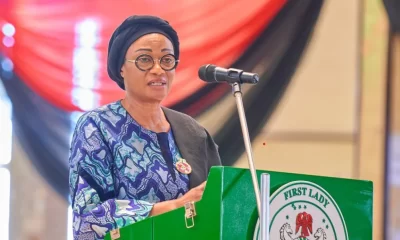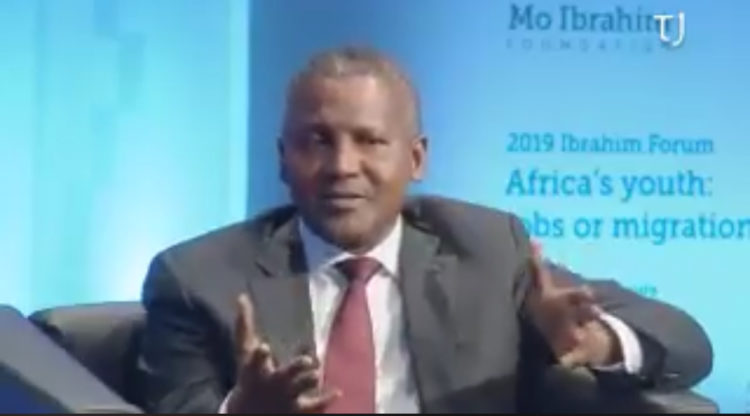Africa’s richest man, Aliko Dangote explained some funny thing he did to convince himself aerly on he was a rich man.
According to him, he said he once withdrew $10 million from a Nigerian bank for a reality check: whether he is truly a rich man.
He spoke in an interview in Abidjan on Saturday with fellow billionaire Mo Ibrahim, founder of Mo Ibrahim Foundation in a programme with the theme, African Youths: Jobs or Migration.
The Nigerian billionaire, who will be 62 on 10 April, made money first of all trading in sugar, but he made far much more later when he went full blast into manufacturing, producing cement, sugar, pasta and juice.
“After a year or so, I realised that I had more than 12, 13 billion. I say Ok fine, all these numbers, are just written numbers, one day I went to a bank. At that time, there were no restrictions, and I wrote a check and cashed $10million. And I took it home for myself. I put it in the booth of my vehicle and I went home. And I opened it and I looked at the $10 million and I believed that now I have money.”
Having convinced himself that he is truly rich, Aliko said he returned the money to the bank the following day, intact.
Dangote’s story drew applause from the crowd.
Mo asked him how much money he has in his wallet on the day of the interview, Dangote said he had none and empty his coat pockets to show that there was no money kept there.
“That’s money for you guys, we don’t carry money’, Mo Ibrahim said.
Anecdotes aside, Dangote said that the two most promising sectors for Africa’s future were agriculture and new technologies. But he advised young African entrepreneurs not to get carried away by the first flush of success.
“Often in Africa we spend our projected incomes. There are ups and downs” in business, he warned.
Dangote said he regretted the customs and administrative problems that hamper business development throughout the continent.
He cited the difficulties his cement group faces in exporting to Benin from Nigerian factories 40 kilometres (25 miles) from the border. Benin imported “more expensive” cement from China instead.

 Entertainment7 days ago
Entertainment7 days ago
 Entertainment4 days ago
Entertainment4 days ago
 Comments and Issues6 days ago
Comments and Issues6 days ago
 Business7 days ago
Business7 days ago
 Comments and Issues6 days ago
Comments and Issues6 days ago
 Health1 week ago
Health1 week ago
 Health5 days ago
Health5 days ago
 Editorial Opinion1 week ago
Editorial Opinion1 week ago

